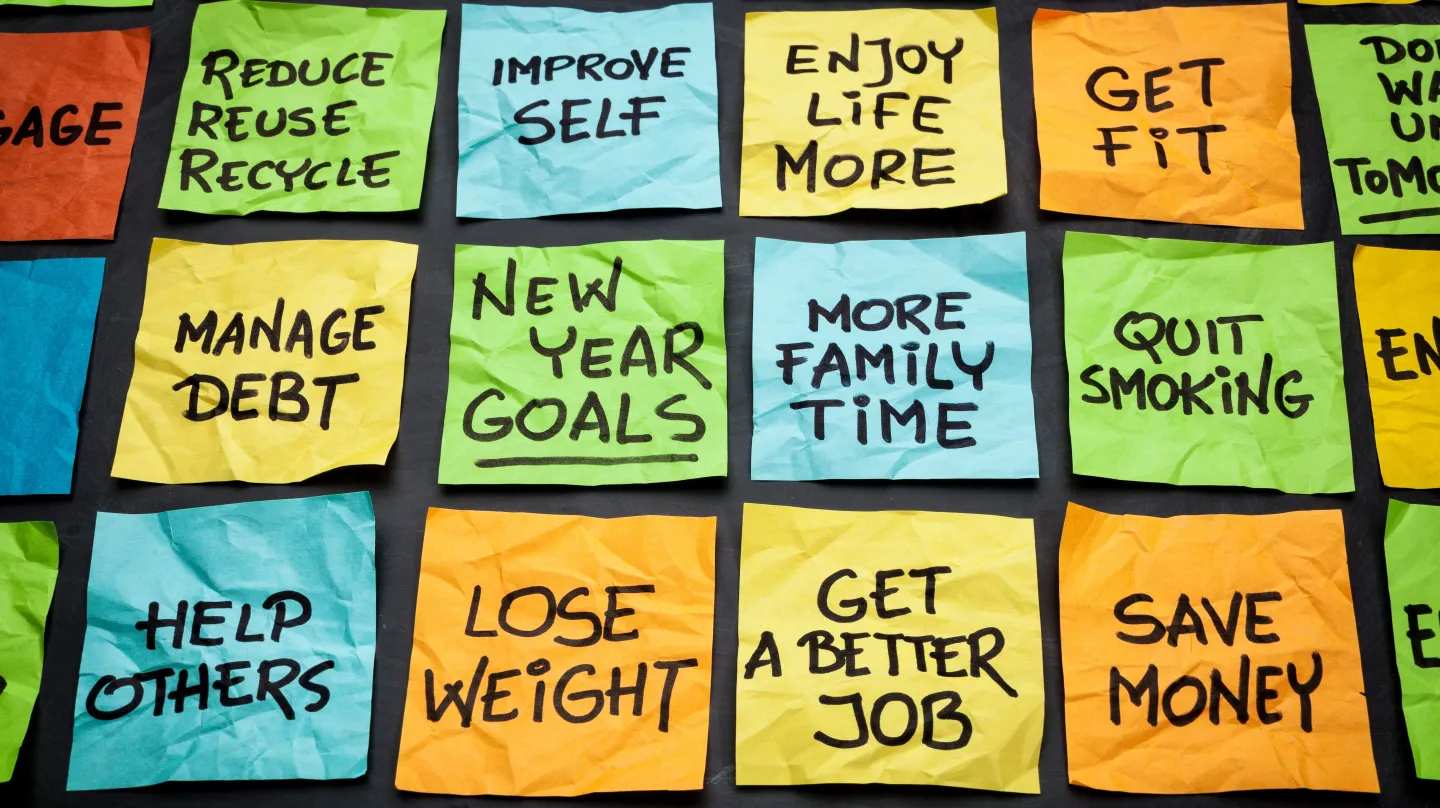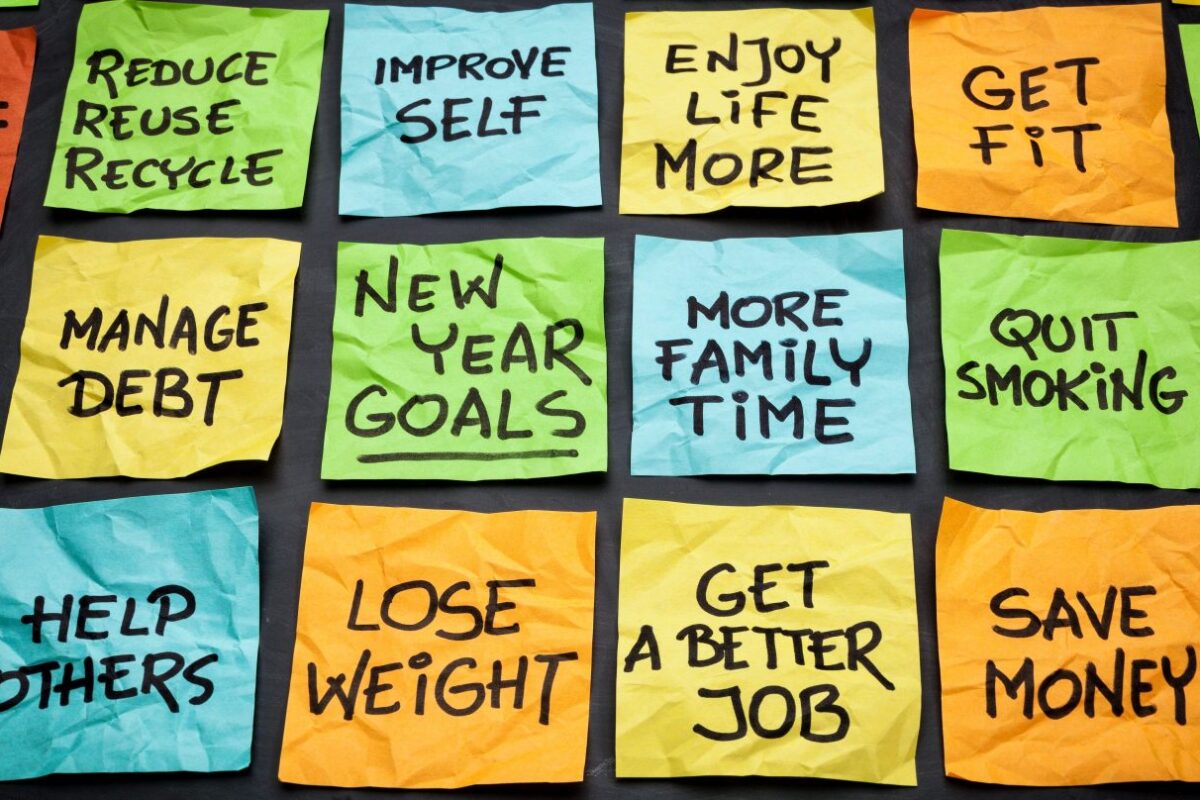Why New Year’s resolutions don’t work for everyone, says expert

If you find yourself constantly setting New Year’s resolutions and end up breaking them, don’t fret—it may not actually be your fault.
If you simply search the word “habits” on Amazon, you’ll come across 60,000 different results — most of them coming from books. The practice of habit formation has become quite popular over the years, with a lot of research pointing to habit forming as a solution for actually seeing success in terms of one’s health, career, and more. But what if this isn’t everyone’s story? Why does setting habits work well for some, and not others? If you find yourself constantly setting New Year’s resolutions and end up breaking them by the first or second week, don’t fret — it may not actually be your fault.
Michelle Segar, PhD, an NIH-funded researcher at the University of Michigan and author of the book “The Joy of Choice,” says that while the idea of habits seems like a simple solution to a problem, the behavior doesn’t actually work for everyone — no matter how strong your willpower may or may not be.
“The ways we’ve been taught to change our behavior when it comes to eating and exercise is really setting most of us to either succeed or fail,” says Segar.
What does it mean to be a habiter?
According to Segar, habit formation means “creating an automatic habit that we don’t have to think about,” like making a cup of coffee in the morning or feeding your dog. It’s an unconscious, cue-based action that you don’t have to put any willpower into.
This type of behavior has been applied to a lot of research regarding healthy eating and exercise. Diet and wellness programs thrive on this idea, teaching consumers how to set healthier habits that become second nature to their day. While the idea may seem plausible, not everyone has the natural drive to be a habiter (i.e. someone who can easily set habits).
“People who are habiters tend to have innate self-control,” says Segar. “They’re disciplined, they tend to be very organized, and their ability to form habits really reflects a personality that tends to be self-disciplined about organization and time management. But I would say that that’s not most of us.”
Why does habit forming not work for everyone?
“I’m not saying that planning isn’t important,” says Seegar. “What I am saying is that there are a ton of popular books out saying that people can form automatic habits for anything, and that’s the way to lasting success. Not only is there not much research to support that contention, but most of the research that has been done on habit formation is with animals and in labs and like universities with college students. So really it doesn’t translate at all into the way that most of us live with families and jobs and that sort of thing.”
Long story short — life gets messy. While the idea of setting habits seems easy enough at first, everyday life isn’t always as linear. A strict day of habits won’t work if life throws you a curveball.
“There’s always gonna be unanticipated things, curve balls that happen in our day that can disrupt or derail anything, not just exercise and eating,” she says. “Sure, we may not have a ton of self-discipline or be super organized or really great with time management, but we also tend to be the people who are juggling home and family in addition to working outside of the home.”
Along with navigating life’s everyday challenges, the idea of habits being the way to success doesn’t work for people who have a hard time following strict rules and guidelines. Segal calls these types of people “inhabiters.”
“They need to recognize that they are inhabiters and not blame themselves for their lack of success because the old story behavior change is really set up for habiters and not for inhabiters,” she says. “The way their whole society has really been oriented is based on gold standards, rigid ideals, and precision. It’s kind of like a tightrope; it’s based on being able to walk this tightrope or hitting a bullseye every time. And if you don’t hit the bullseye, you just fall. What we need is a much more flexible strategy.”
We don’t expect perfection in other areas of our lives.
Clearly, there is a good intention behind setting New Year’s resolutions. Whether it’s to eat healthier or exercise more, the desire to better yourself in the New Year is always enticing. But maybe setting healthy habits isn’t the answer for everyone.
“Our approach to exercise in healthy eating is so dogmatic and based on all-or-nothing thinking,” Segal says. “Yet when we step out of those two behaviors and we go into our parenting lives and our professional lives and our partnering lives, we don’t expect perfection, right? We’re always being flexible. We have no choice in these other areas but to keep going on the path of being a parent. We don’t expect perfection, yet we don’t bring the same grace to eating and exercise.”
Segal points out that the flexibility one show’s when it comes to other aspects of their life should also be applied to taking care of your health, yet culture (and strict dieting programs) makes it easy to believe that one mistake leads to complete failure.
“If we made a mistake or our partners or kids make a mistake, would we just quit?” she asks. “What would our lives look like if we were always stopping and starting [like we do with getting healthy]?”
How can you live healthier if you aren’t a habiter?
If you thrive on having habits to follow throughout the day, you are likely a habiter and should continue to follow that instinct. However, if setting habits never works for you — and you always find yourself failing to achieve your New Year’s resolutions — then it may be time to switch up your thinking around setting habits by, well, not setting them at all.
Here are a few other solutions to consider that will help you achieve those healthy goals you set for yourself this year.
- Cook 10 new healthy recipes this month. Instead of saying “I’m going to eat healthy every day,” why not make it a challenge to cook a few new recipes this month? Find 10 new healthy recipes that excite you and make it a goal to cook those throughout the month. Save the ones you like, and toss the ones you don’t. Then do it again the following month. Soon, you’ll find you have a plethora of healthy recipes to choose from, making it easy to cook meals that are healthy and that you love.
- Try a new type of exercise each week. Want to move more this year? Instead of setting a goal to walk every day or work out four times a week, give yourself some flexibility and allow yourself to try new things. Challenge yourself to try a new type of workout each week — like yoga, pilates, barre, rock climbing, dance cardio, etc. Soon you’ll find something that you love and you’ll likely feel motivated to do it more based on a schedule that actually works for you.
- Focus on the quality of your food. Instead of calorie counting or following some restrictive diet program, focus on the quality of your food this year instead. Try cooking with new vegetables or fruits as a challenge, or make it an effort to choose high-quality ingredients when cooking your meals. Plus, there’s research to show why food quality matters more than quantity.
This article was originally published on Clean Plates.
More must-reads:

